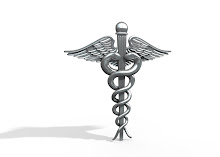
Additives, preservatives, and the like can act in the body to burden the liver,
raise blood pressure and even stimulate cancer cell growth.
Food - fruits and vegetables, grains and nuts - are incredibly un-sexy nowadays though they provide all the nutrients the latest ‘discoveries’ tell us we need to be healthy.
‘Food’ has the ability to replenish nutrient shortages, hydrate and detoxify the body, build blood, muscle and bone, create natural energy, boost immunity, fight infection and build the enzymes needed to repair DNA.
Breast cancer begins with damaged DNA. So, whatever protection we can provide to our DNA is worth the effort.
Food for maintaining breast health:
Mushrooms
Maitake mushroom literally means “dancing mushroom”. Historically, Maitake was so rare that people danced when they found it.
Along with other mushrooms in the family (Cordyceps, Coriolus, etc), Maitake contains natural sugars which stimulate cancer fighting NK and T cells.
Turmeric
The turmeric plant gives curried dishes their distinctive yellow color and contains a potent antioxidant called curcumin. Curcumin has multiple cancer fighting mechanisms including downregulating COX-2 (inflammation), EGFR and HER-2 (proliferation triggers). Chronic inflammation has been shown to progress to cancer particularly in the stomach and bladder.
Broccoli, Cauliflower, Brussel sprouts belong to the Brassica family and contain the chemopreventive agent brassinin. Chopping and light steaming make broccoli’s bioactive compounds more available. Organically grown cruciferous vegetables show higher levels of phytonutrients than conventionally grown.
Grapes are one of the most commonly consumed foods worldwide. Grape seeds, along with peanuts and mulberries, contain resveratrol. Resveratrol has been shown to possess chemopreventive and anti-tumor properties in laboratory studies.
Leaf Vegetables (spinach, kale)
Doctors recommend getting sufficient amounts of folic acid during pregnancy to protect against anemia. Following this recommendation before and after pregnancy as well can improve breast health. Folate (dietary methyl) is a nutrient that helps to regulate DNA methylation.
This accessory modification then partly controls which genes are switched on or off.
It is important that the so called ‘tumor suppressor genes’ such as BRCA-1 are properly regulated. Thus genes can be influenced by compounds in the foods we eat.
Onions and garlic contain allyl sulfides - compounds that make cells sensitive to the stress of cell division. Because cancer cells divide so frequently they undergo more stress and create more stressors. They are thus more susceptible to damage by allyl sulfides. The effective compounds are best concentrated at home by crushing or finely chopping the garlic and waiting about 15 minutes before cooking.
Soy has been associated with inhibition of breast cancer cells in some but not all laboratory studies. Soy (tofu, tempeh, etc.) contains phyto estrogens which mimic the body’s natural estrogen. It is believed that its tumor inhibiting properties are invoked by binding to estrogen receptors and blocking their growth stimulatory signals.
Special foods, called herbs, typically have little nutritive value but possess potent functional characteristics. Pharmaceutical companies have already harnessed the Pacific Yew tree and Periwinkle plant to create drugs like Taxol and Oncovin. Several other species have significant potential in cancer prevention and treatment.
Astragalus has a long history of use and seems to enhance the immune system by restoring suppressed immune T cell function.
Baikal skullcap (Scutellaria baicalensis) inhibits cancer cell proliferation in research studies.
Mushrooms (Codyceps, Coriolus, Maitake, etc.) show immunomodulating effects. They contain sugars such as polysaccharide-K (PSK) which have been used in Japan as an adjunct to chemotherapy.
Graviola (Annona muricata) may also be known as soursop. These tropical plants contain the Annonaceous acetogenins which stimulate apoptosis (programmed cell death) and seem to convey Graviola’s anti-tumor abilities. Studies also demonstrate Graviola’s capacity to inhibit the removal of cancer drugs from the cells.

Be carefull what you eat 'cause sooner or later it will affect your health!
LET FOOD BE YOUR MEDICINE!!!


No comments:
Post a Comment